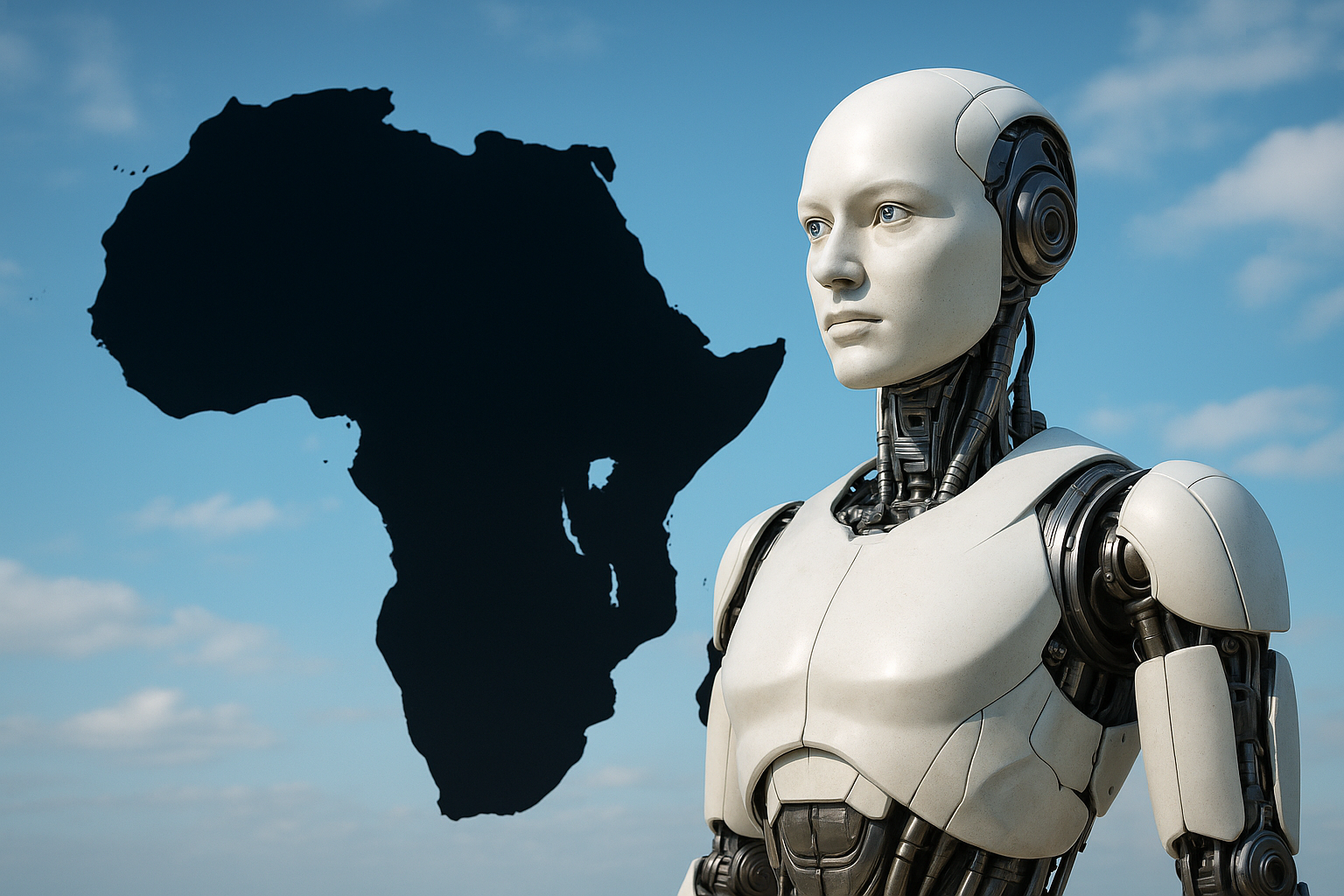Digital colonialism fears rise as Africa lacks resources to manage AI risks
alicious use of AI threatens democracy, human rights, and public trust through deepfake-driven electoral interference, disinformation campaigns, and digital surveillance. Cases in Kenya, Uganda, and Ghana illustrate how AI-generated propaganda and automated bots have already been used to manipulate political narratives.

A coalition of African and international researchers has sounded the alarm on the continent’s growing exposure to artificial intelligence (AI) risks, warning that Africa must urgently craft its own safety agenda to prevent deepening vulnerabilities. The study submitted on arXiv maps a landscape of unique threats facing African societies.
Titled “Toward an African Agenda for AI Safety”, the research warns that without urgent measures, Africa could be overwhelmed by the disruptive force of frontier AI technologies. It points out that while advanced economies are already building safety institutes and governance frameworks, Africa’s absence from global decision-making leaves it exposed to manipulation, disinformation, cybercrime, job losses, and environmental fallout.
Malicious use, technical failures, and systemic disruptions
The authors outline a three-pronged framework of risks that Africa faces: malicious use, malfunctions, and systemic disruptions. Malicious use of AI threatens democracy, human rights, and public trust through deepfake-driven electoral interference, disinformation campaigns, and digital surveillance. Cases in Kenya, Uganda, and Ghana illustrate how AI-generated propaganda and automated bots have already been used to manipulate political narratives. With weak democratic institutions and rising internet penetration, the authors argue that African societies are especially vulnerable to these tactics.
Surveillance technologies, often imported from foreign firms, add to the risk. Concerns have been raised over facial recognition deployments in Zimbabwe and Uganda, with critics fearing authoritarian abuse. In parallel, African governments’ dependence on U.S. and Chinese technology companies raises sovereignty issues, with cloud infrastructure investments by Huawei, Alibaba, Microsoft, and others shaping the continent’s digital future. Militarization of AI compounds these risks, with the possibility of autonomous weapons and extremist groups exploiting open-source AI tools for radicalization and cyber operations.
Technical malfunctions present a second threat. AI systems trained largely on Western datasets often fail in African contexts, leading to biased outcomes in healthcare, finance, and education. Infrastructure gaps, such as unreliable electricity, further compromise the reliability of AI diagnostic tools and learning platforms. Biases in facial recognition, content moderation, and language models amplify discrimination against Africans, while inadequate research infrastructure limits the continent’s ability to correct these flaws.
The third layer of systemic risks includes large-scale economic, social, and environmental consequences. The study highlights how AI threatens to disrupt Africa’s labour markets, particularly in outsourcing and gig work, where millions of jobs could be automated away. Women and low-skilled workers are expected to face disproportionate losses. Environmental risks add to the burden: the carbon emissions, energy consumption, water use, and e-waste generated by AI development are projected to grow, with Africa bearing a disproportionate share of climate change costs.
Gaps in governance and the role of the African Union
While global leaders in the United States, Europe, and Asia have established AI Safety Institutes, Africa lags significantly in policy readiness. According to the authors, only 26.8 percent of African states have demonstrated any activity related to AI safety, accuracy, or reliability. Kenya stands out as the only country with initiatives spanning government frameworks, non-state actors, and concrete plans for a national AI strategy. Ghana, Morocco, Rwanda, and South Africa are making initial strides, but most nations remain unprepared.
The African Union has attempted to fill this gap with the Continental AI Strategy of 2024, which identifies AI’s potential for social progress but also its risks of worsening inequality and enabling new forms of harm. The strategy includes provisions for developing technical standards, hosting annual conferences on AI safety, and establishing expert groups to assess peace and security impacts. However, the study cautions that these commitments are still largely aspirational and lack mechanisms for enforcement.
The authors point out that without significant investment in technical capacity, Africa risks falling into what they call “computational poverty.” With less than one percent of the world’s supercomputers and only two percent of global data centers, the continent depends heavily on external technologies, creating a new form of digital colonialism. This dependency, they argue, undermines sovereignty and hinders Africa’s ability to evaluate and regulate frontier AI models independently.
A five-point action plan for Africa’s AI future
To close these gaps, the research advances a five-point action plan aimed at building resilience, protecting rights, and asserting Africa’s agency in global AI governance.
First, the authors call for a human rights-based approach to AI safety, ensuring that governance mechanisms uphold privacy, dignity, and equity, particularly for vulnerable communities most likely to be harmed by AI deployment.
Next up, they propose the creation of an African AI Safety Institute, modeled on those in advanced economies but designed to reflect local realities. The institute would test AI models, research region-specific risks, and contribute African perspectives to global safety debates.
Third, the paper emphasizes AI literacy and awareness campaigns, including the integration of AI safety into education curricula, public campaigns to counter disinformation, and sector-specific training for policymakers, journalists, and civil society.
Fourth, the researchers recommend building early warning systems to detect disinformation, deepfakes, and other AI-driven threats in real time, with benchmark suites covering more than 25 African languages to ensure inclusivity across the continent’s diverse populations.
Furthermore, they call for an annual African Union–level AI Safety and Security Forum. This event would convene all 55 AU member states to harmonize policies, produce annual safety reports, negotiate collectively with global technology providers, and strengthen Africa’s voice in international forums.
- FIRST PUBLISHED IN:
- Devdiscourse










